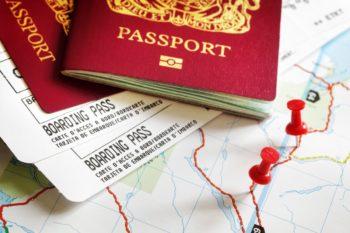Traveling abroad can be an exhilarating experience, filled with the promise of new adventures and cultural discoveries. However, amidst the excitement of planning itineraries and packing bags, one crucial aspect often gets overlooked: medical coverage. Understanding the nuances of health insurance when crossing international borders is not just a precaution; it’s a necessity. This guide aims to equip every traveler with the essential knowledge needed to navigate the complexities of medical coverage abroad confidently. From understanding the limitations of domestic insurance plans to selecting the right international policy, we will explore the key considerations that ensure peace of mind during your travels. Whether you’re a seasoned globetrotter or embarking on your first international journey, being informed about your medical coverage options is the first step towards a safe and worry-free adventure.
Understanding Your Current Health Insurance Limitations Abroad
When planning a trip abroad, it’s crucial to delve into the specifics of your current health insurance policy to understand its limitations when traveling internationally. Many travelers assume their domestic health coverage will seamlessly extend beyond borders, but this is often not the case. Before you pack your bags, take a moment to verify what is and isn’t covered under your existing plan.
- Emergency Coverage: Some insurance plans may offer limited emergency medical coverage abroad, but this typically does not include routine care or pre-existing conditions.
- Out-of-Network Providers: Treatment received from out-of-network providers can lead to significant out-of-pocket expenses, as most local healthcare providers abroad won’t have agreements with your domestic insurer.
- Evacuation and Repatriation: Check if your policy includes medical evacuation and repatriation, which are crucial for serious medical situations that require transportation back to your home country.
- Country-Specific Exclusions: Be aware of any country-specific exclusions that may affect your coverage, as some insurers do not cover certain regions or countries.
Being informed about these limitations not only helps you avoid unexpected costs but also ensures you have the necessary protection in place, allowing you to travel with peace of mind.

Choosing the Right Travel Insurance for Comprehensive Medical Coverage
When selecting travel insurance, ensuring comprehensive medical coverage is crucial for peace of mind during your adventures. Here are key factors to consider:
- Understand Coverage Limits: Review the policy’s maximum payout for medical expenses. Make sure it aligns with the healthcare costs in your destination country.
- Check for Pre-existing Conditions: Some policies exclude coverage for pre-existing medical conditions. Ensure your needs are covered, or look for policies that offer waivers.
- Emergency Evacuation and Repatriation: Verify that your policy covers emergency medical evacuation and repatriation, which can be crucial if local medical facilities are inadequate.
- Provider Network: Some insurers have partnerships with international healthcare providers, facilitating easier access to care. Check if your preferred policy offers this feature.
- 24/7 Assistance: Choose a plan that offers round-the-clock assistance services, which can be invaluable in navigating foreign healthcare systems and overcoming language barriers.
By evaluating these elements, you can confidently select a travel insurance plan that offers robust medical protection, allowing you to focus on enjoying your journey.

Essential Steps to Take Before Traveling for Seamless Healthcare Access
Traveling internationally can be an exciting adventure, but ensuring you have seamless access to healthcare is crucial. Here are some essential steps to take before you embark on your journey:
- Review Your Current Health Insurance: Check with your insurance provider to understand what medical services are covered abroad. Some policies may not cover international travel, so it’s important to know your limits.
- Purchase Travel Health Insurance: Consider purchasing a comprehensive travel health insurance plan. These plans often cover emergency medical services, evacuation, and sometimes even pre-existing conditions.
- Research Local Healthcare Facilities: Familiarize yourself with the healthcare facilities in your destination. Knowing where the nearest hospital or clinic is located can save valuable time in an emergency.
- Carry Essential Documents: Keep copies of important medical documents, such as prescriptions, vaccination records, and your insurance policy, both in your luggage and digitally accessible.
- Understand the Local Language: Learning basic medical terms in the local language or having a translation app can help in communicating your needs effectively.
By taking these proactive steps, you can travel with peace of mind, knowing that you’re prepared for any health-related challenges that may arise.

Emergency Preparedness: Navigating Healthcare Systems in Foreign Countries
Understanding how to navigate healthcare systems in foreign countries is crucial for any traveler. Before embarking on your journey, make sure to research the healthcare infrastructure of your destination. Consider these key factors to ensure you are well-prepared:
- Insurance Coverage: Verify if your current health insurance plan covers international travel. If not, explore travel insurance options that include medical coverage.
- Local Healthcare Facilities: Identify hospitals or clinics in the area you plan to visit. Familiarize yourself with their services and whether they have English-speaking staff.
- Emergency Contacts: Keep a list of emergency contact numbers, including local emergency services, your country’s embassy, and your insurance provider.
- Medication and Prescriptions: Bring an adequate supply of any necessary medications, along with a copy of your prescriptions in case you need to replenish them.
Remember: Healthcare systems vary widely across the globe, so being proactive about understanding the local processes can save time and stress during an emergency. Always prioritize your health by staying informed and prepared.

